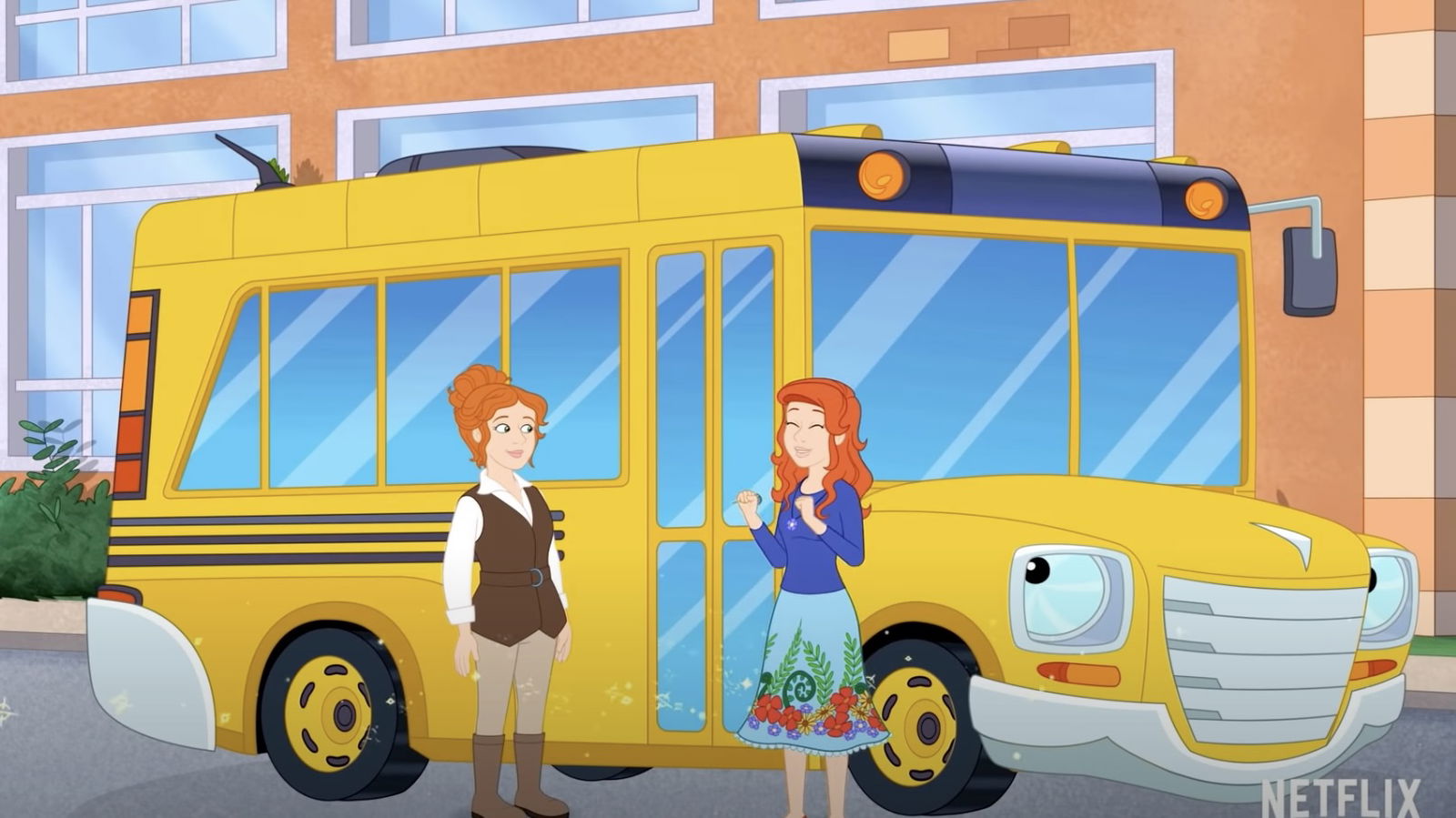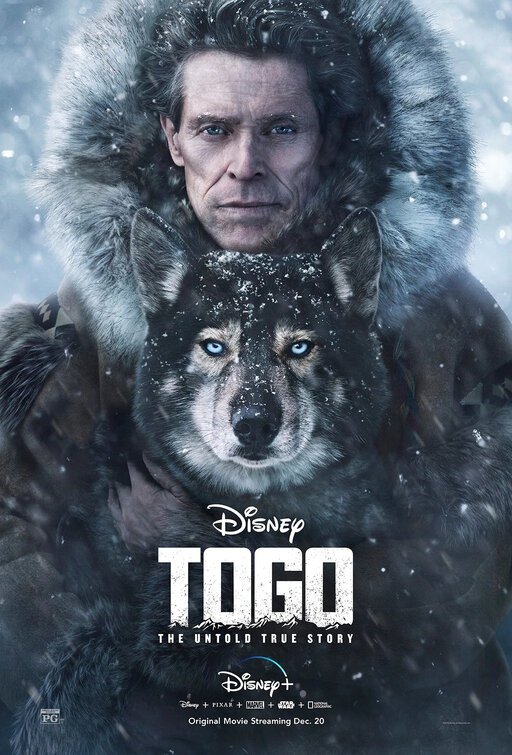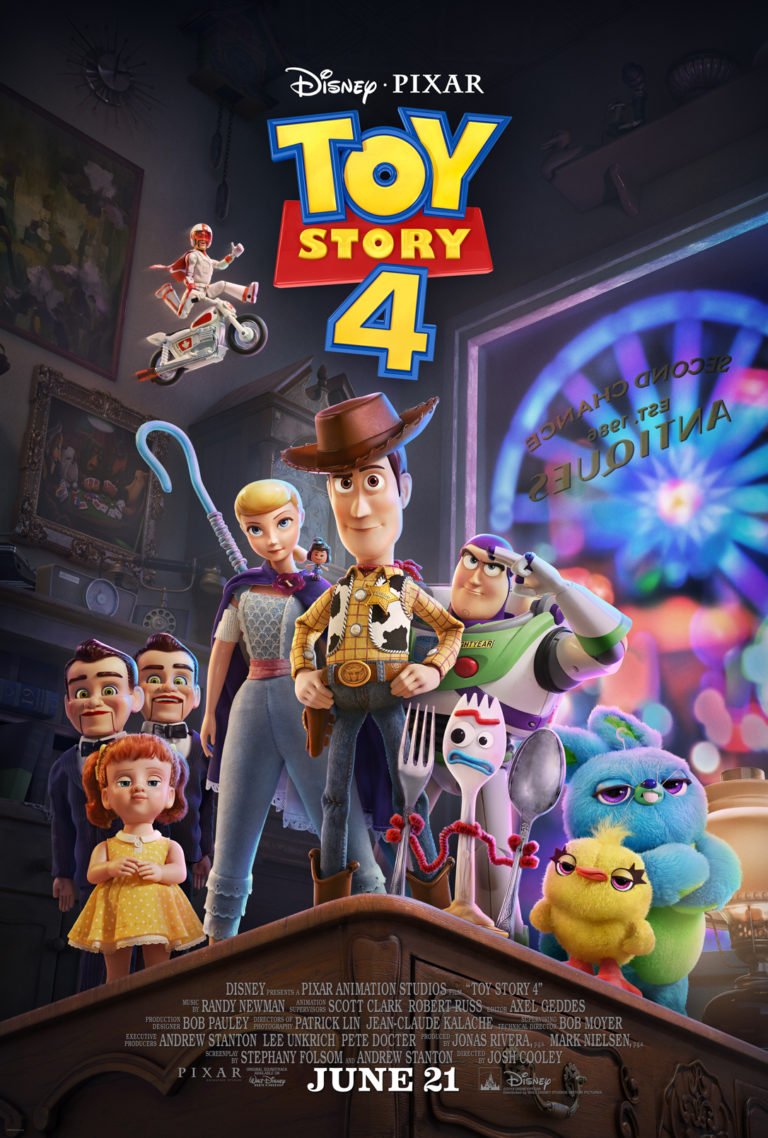
THE MAGIC SCHOOL BUS RIDES AGAIN: Educational with Minor Questionable Elements
By Movieguide® Contributor
In Netflix’s THE MAGIC SCHOOL BUS RIDES AGAIN, Season 1, Ms. Frizzle, voiced by Lily Tomlin, has ditched her earrings for a life of adventuring and studying the world. She leaves her students behind in the hands of her little sister, Miss Fiona Felicity Frizzle, voiced by Kate McKinnon.
Like the original ’90s show, THE MAGIC SCHOOL BUS, the series is produced by Scholastic Entertainment. The show features some of the same writers from the original show—Joanna Cole, Bruce Degen and John May—and new writers Suzanne Bolch, Evan Thaler Hickey and others.
In the same style as her sister, the new Miss Frizzle takes the class of 5th-grade students on fun scientific field trips in a magic bus with a helpful iguana named Liz. Instead of using unique earrings to show enthusiasm for the day’s activities, Miss Frizzle wears skirts that show off atoms and electrons, plants and other scientific things. The class has the same characters as the original show, except for Phoebe, who has been replaced with a Gujarati girl named Jyoti.
In each episode, the students usually have something they are trying to accomplish or a question they need an answer to. To help them with their task and to provide them with a very immersive education, Miss Frizzle whisks the kids away to visit the ancient Arctic, the deepest parts of the ocean or to become white blood cells in the human body. Though the original Ms. Frizzle isn’t at the forefront this time, she hasn’t disappeared completely. She chips in at the end of each episode by answering a question from a curious kid, no matter where she is in the world.
For the most part, Season 1 displays a moral worldview. It promotes friendship, problem-solving and comradery, and everyone is considerate of each other, though a good-natured practical joke is sometimes played. The children also learn to behave respectfully toward their teacher. However, the show references scientific theories that do not line up with Christian beliefs. This is the only reference in this season that indicates it might lean toward a naturalistic humanist worldview. However, later seasons or its three spin-off series might lean toward humanism more strongly.
The children’s education is also enhanced with “magic” so that they can shrink into molecules or travel anywhere and in any way they want. Otherwise, there is little concerning content.
The animation of characters in this series is more generic and less detailed than its predecessor. However, it keeps the same classic Magic School bus spirit, with many exciting and educational adventures that encourage curiosity and value humor.
Overall, this is a fun-filled and highly educational show that revels in making science and biology fun for kids. It is well-made and moral for the most part. Yet, it does have some minor questionable elements.
Questions or comments? Please write to us here.


 - Content:
- Content: 

